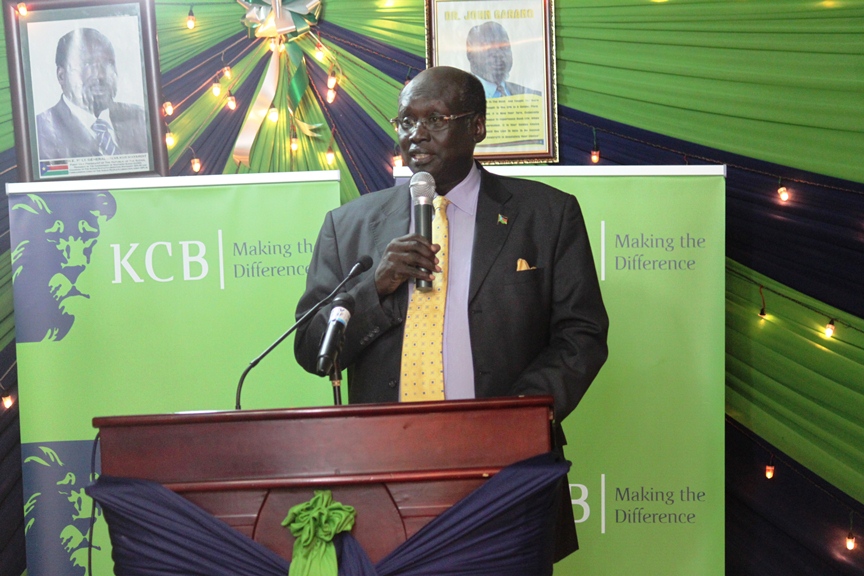Support S. Sudan’s tourism sector, minister tells Kenyan bank
By Julius N Uma
June 7, 2012 (JUBA) – A minister in South Sudan’s government on Wednesday urged the Kenyan Commercial Bank (KCB) to support the country’s in developing the tourism industry as part of the approach to diversify its economy, which largely depends on oil.

Speaking at an occasion to say farewell to outgoing chairman of the bank in South Sudan, Barnaba Benjamin Maria, the country’s information minister said South Sudan has abundant natural resources, but the world’s newest nation simply lacked the capacity to capacity and manpower to exploit its potential.
“This country is gifted with lots of resources in form of minerals, wildlife, culture and tourism. But to develop these sectors, the young nation will require investors to invest capital, if the country’s citizens are to benefit from the existing resources,” he said.
Marial, who acts as the government’s spokesperson, also lauded the management of KCB, East Africa’s largest commercial bank for providing services to the people of South Sudan, a relationship which started even before the 2005 signing of the Comprehensive Peace Agreement in Naivasha, Kenya.
The partnership between KCB and South Sudan began in the 1980s when rebel group the Sudan People’s Liberation Movement (SPLM) — now the ruling party of independent South Sudan — began its guerrilla war against Khartoum.
South Sudan, early this year, shut down its oil production in the wake of a dispute with neighboring Sudan over transit fees levied for using the latter’s pipelines. Oil revenues, prior to the shut down, accounted for 98 percent of South Sudan’s annual budget.
A series of austerity measures, were introduced in the aftermath of the oil shut down a reduction in expenditure within government ministries, with the exception of the defence, health and education.
However, with more focus on the collection of non-oil revenues, the country’s finance ministry recently announced that its customs and taxation department last month raised over SSP 5 million (US$1.9 million) in taxes.
An internal audit report seen by Sudan Tribune, which bears the signature of Kosti Manibe, South Sudan’s finance minister, claims that collection of non-oil taxes have doubled since closure of the oil pipeline and the subsequent austerity measures.
In May, leaked World Bank reports published by Sudan Tribune indicated that South Sudan was heading towards economic disaster as a result of the closure of the oil pipeline in January.
Peter Muthoka, the outgoing KCB group chairman, while speaking at the occasion emphasised the need for strong relations between the bank and its partner country. KCB currently has 223 branches in Uganda, Kenya, Tanzania, Rwanda and Burundi, with 19 of them in all the 10 states of South Sudan.
The bank reportedly employs 330 staff, 267 of whom are South Sudanese nationals. This numbers of southerners, he noted, constitute 80 percent of the workforce all over its branches in the country. The bank reportedly controls 42% of the country’s banking industry.
“KCB is here to stay with the people of South Sudan,” said Muthoka.
“Our future plan is geared towards becoming the preferred financial solutions provider in Africa.”
(ST)
